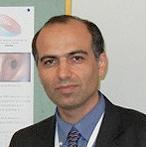Blog Archives
Iran felt isolated and betrayed for over 30 years
.
 Last June this site posted news about the work of Dr. Shahriar Khateri, co-founder of the Tehran Peace Museum.
Last June this site posted news about the work of Dr. Shahriar Khateri, co-founder of the Tehran Peace Museum.
After fighting in the 1980-88 Iran-Iraq war he went to medical school and later co-founded the Society for Chemical Weapons Victims Support – which many believe should have shared the Nobel peace prize with the Organisation for the Prohibition of Chemical Weapons.
Strategic loneliness
 Robin Wright has now written from Tehran about the lingering impact of the 1980s war defining Iran’s worldview – described by Nasser Hadian, a University of Tehran political scientist, as one of “strategic loneliness”.
Robin Wright has now written from Tehran about the lingering impact of the 1980s war defining Iran’s worldview – described by Nasser Hadian, a University of Tehran political scientist, as one of “strategic loneliness”.
Robin continues: “Tehran felt a sense of isolation and betrayal after the United Nations verified Iraq’s repeated use of chemical weapons, but the outside world still almost unanimously sided with Saddam Hussein. Iran’s neighbors aided him. Europeans and Russians sold him arms. The United States was complicit too. Washington provided Baghdad with intelligence on Iran’s equipment and troops strengths to help Iraq retake the Fao Peninsula in 1988. Iraq made widespread use of chemical weapons to win it back”.
In June 2013, State Department documents dealing with the 1980-88 Iran-Iraq war were declassified and released under the Freedom of Information Act. Some confirmed 2002 reports that US Defence Secretary Donald Rumsfeld – an executive in the pharmaceutical industry – helped Saddam Hussein build up his arsenal of chemical and biological weapons.
Iran has become the world’s ‘largest laboratory’ for the study of low-dose exposure to chemical weapons
It is estimated that Iran suffered more than 50,000 immediate casualties from Iraq’s repeated use of nerve agents and toxic gases in the 1980s. Years after the war however, Iranian doctors noticed that respiratory diseases with unusual side-symptoms — corneal disintegration, rotting teeth and dementia, a combination synonymous with mustard gas — had started killing some veterans who had not been on the frontlines. The troubling pattern was soon diagnosed as secondary contamination to mustard gas.
The final tally of the war may still not be known for years, Dr. Shahriar Khateri, now Iran’s leading expert on chemical weapons victims, says. “Most of the men exposed to chemical weapons were not registered casualties at the time. So almost every day there are new cases — 30 years after the war.” Dr. Farhad Hashemnez told Robin Wright in 2002. “At least 20% of the current patients are civilians who didn’t think they were close enough to be exposed.”
Khateri says 70,000 are registered and other Iranian doctors predict that the final toll of Iraq’s chemical weapons could rival the 90,000 who died from toxic gases in World War I.
–
Robin Wright has been a fellow at Yale, Duke, Stanford, Brookings, the Carnegie Endowment for International Peace, the Woodrow Wilson International Center for Scholars and the U.S. Institute of Peace. Among many awards, she won the U.N. Correspondents Gold Medal, the National Magazine Award, and the Overseas Press Club Award for “best reporting in any medium requiring exceptional courage and initiative”.
–
Sources: http://world.time.com/2014/01/20/iran-still-haunted-and-influenced-by-chemical-weapons-attacks https://civilisation3000.wordpress.com/2013/06/22/good-news-from-iran/ https://www.blogger.com/profile/11768038936007351828 .